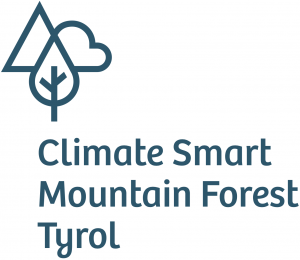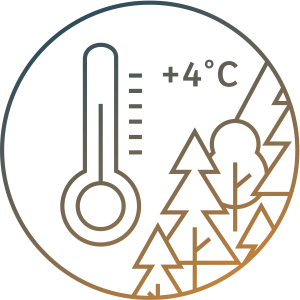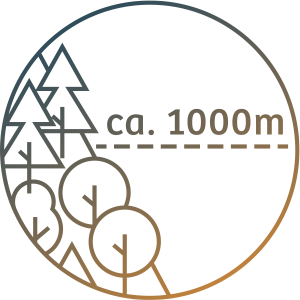The average annual temperature in the Alpine region is currently two degrees above the long-term mean. Worst-case scenarios estimate changes of up to four degrees higher and even up to six degrees higher in 2100. Climate change leads to drought stress in trees, increasing their vulnerability to pests and diseases.
In recent years, experts have been detecting increased damage to spruce and pine, as well to ash and elm. Most notably, the widespread/ubiquitous spruce is coming under more and more pressure from drought stress and the bark beetle, in those wooded areas below 1000 m above sea level. Further escalation of these phenomena would impair the important protective function forests play in combating natural climate hazards in Tyrol.
Approximately 40,000 ha of Tyrolean forest are classified as „climate-sensitive forest areas“, which are those forests located in dry areas below 1000 m above sea level. These are the priority for rejuvenation and conversion into mixed forests.
The long-term goal of the “Climate-Smart Tyrolean Mountain Forests” action group is to adapt Tyrolean forests for climate change.
Furthermore, we aim to raise social awareness particularly to the consequences of climate change on protective forests and the environment.
Our motto is: Diversity above all! In recent years, many essential measures have already been started. By coordinating these measures and promoting focal points, in a targeted and coordinated way, we should be able to deliver a positive impact on the state of our forests.
This would bring long-term benefits to both society and forest owners by shielding Tyrolean local communities and economic livelihoods from natural hazards and by maintaining the profitability of our mountain forests.
We need to design effectively the framework conditions in order to achieve successful implementation. Ownership structures, wild life and grazing cattle all play a major role. Constructive cooperation between all those involved is needed in order to:
- rejuvenate small areas of old forest and bring in mother trees;
- actively reforest with mixed tree species;
- strengthen forest maintenance and thinning;
- offer advanced training courses on professional afforestation and maintenance of mixed forests;
- specify fund programmes to provide incentives;
- increase awareness-raising measures and engage the public;
- expand cooperation and networking with natural space partners.
Project Management
DI Kurt Ziegner
Tyrolean Regional Government
Forest Division
E-Mail: kurt.ziegner@tirol.gv.at
Mobile: 0043 (0)676 885084540
Videos
Timber Buildings: Our Second Forest | How Timber Buildings Store Carbon



